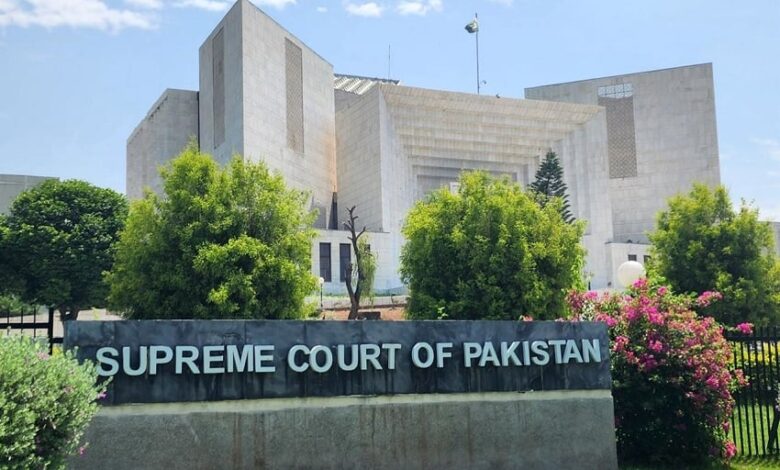The Supreme Court advocates for reforms in crime reporting standards.

The Supreme Court has urged the nation’s print and electronic media to practice restraint and responsibility in reporting on ongoing criminal investigations, emphasizing the necessity of safeguarding the fundamental rights of both the accused and the victims.
In a detailed 25-page judgment issued on Tuesday, Justice Athar Minallah warned that disproportionate or sensationalised coverage of suspects during investigations may create a perception of guilt, thereby influencing public opinion and potentially undermining the fairness of judicial proceedings.
The decision was rendered during the appeal hearing of Shahid Ali, who had been convicted by a trial court and sentenced to death for the 2014 murder of 7-year-old Wasim Akram in Karachi.
A three-member bench, led by Justice Minallah, reversed the Sindh High Court’s March 15, 2021 ruling that upheld the sentence and acquitted the defendant by granting the benefit of the doubt.
The court articulated significant apprehension regarding an interview of the accused, recorded during his police custody and aired on a private television channel’s program on March 27, 2014.
The court observed that Shahid Ali was under physical remand and had not been charged at the time of the interview, thus he was legally presumed innocent.
The judgment asserted, “This exemplifies how unregulated media coverage can significantly undermine the rights of the accused and jeopardize the integrity of the investigative process.”
The bench criticised the role of police officials who allowed the journalist to interview the accused inside the police station, terming their conduct as illegal and in violation of due process. The ruling further elucidated that the purported confessional statement made by the defendant during the interrogation lacked legal validity, as it was not documented before a magistrate in accordance with Section 164 of the Code of Criminal Procedure.
The court observed that such practices were not isolated incidents but reflected a growing trend in electronic media, where individuals accused of serious crimes are often presented before cameras or interrogated on-air, even while in police custody.
The court observed that this approach not only infringes upon the rights of the accused but also endangers the integrity and transparency of the criminal justice system.
Justice Minallah conveyed sympathy for the victim’s family, highlighting that irresponsible media coverage can exacerbate trauma for those mourning a loss.
The Supreme Court instructed both federal and provincial governments to promptly implement measures to eliminate such illegal practices. The Pakistan Electronic Media Regulatory Authority (PEMRA) was also assigned the responsibility of consulting pertinent stakeholders to develop standard operating procedures (SOPs) for regulating media conduct during active investigations.
Furthermore, the court urged media houses to develop self-regulation mechanisms and adopt best international practices for ethical crime reporting, emphasising that the balance between freedom of expression and the rights of individuals involved in criminal cases must be maintained.
Copies of the verdict have been sent to the Ministry of Interior, Ministry of Information, PEMRA, and the chief secretaries of all four provinces for necessary action.